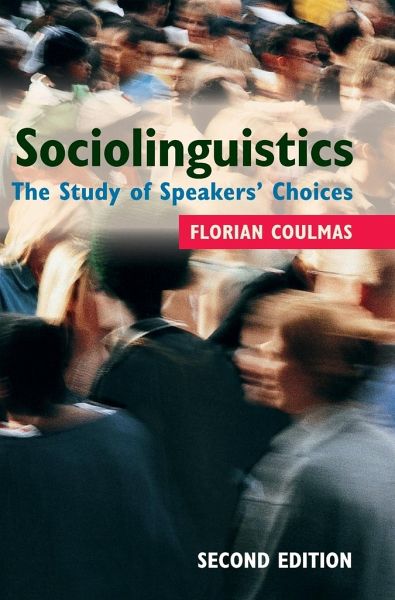
Sociolinguistics
Versandkostenfrei!
Versandfertig in 1-2 Wochen
126,99 €
inkl. MwSt.
Weitere Ausgaben:

PAYBACK Punkte
63 °P sammeln!
Why do we speak the way we do? What are the social factors that influence our choices of expression? This best-selling introduction to the study of language and society encourages students to think about these fundamental questions, asking how and why we select from the vast range of different words, accents, varieties and languages available to us. In this new and updated edition, students are taken step-by-step through the analysis of linguistic expressions, speech varieties and languages in complex settings. Enriched with recent findings from different languages and speech communities aroun...
Why do we speak the way we do? What are the social factors that influence our choices of expression? This best-selling introduction to the study of language and society encourages students to think about these fundamental questions, asking how and why we select from the vast range of different words, accents, varieties and languages available to us. In this new and updated edition, students are taken step-by-step through the analysis of linguistic expressions, speech varieties and languages in complex settings. Enriched with recent findings from different languages and speech communities around the world, this comprehensive textbook equips students with knowledge of the main concepts and gives them a coherent view of the complex interaction of language and society. ¿ 'Questions for Discussion' help students understand how speakers' choices are conditioned by the society in which they live ¿ New to this edition is a rich repertoire of online resources and further reading, enabling students to investigate more deeply and advance their learning ¿ Includes a topical new chapter on research ethics, guiding students on the ethical questions involved in sociolinguistic research.














